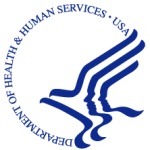- Industry: Government
- Number of terms: 33950
- Number of blossaries: 0
- Company Profile:
United States Department of Health and Human Services, Radiation Emergency Medical Management
Treatment in which anticancer drugs are injected into the fluid-filled space between the thin layers of tissue that cover the brain and spinal cord.
Industry:Health care
Cancer that forms in tissues of the lung, usually in the cells lining air passages. The two main types are small cell lung cancer and non-small cell lung cancer. These types are diagnosed based on how the cells look under a microscope.
Industry:Health care
A type of treatment in which body tissue is exposed to high temperatures to damage and kill cancer cells or to make cancer cells more sensitive to the effects of radiation and certain anticancer drugs. Also called microwave therapy.
Industry:Health care
Not cancerous. Nonmalignant tumors may grow larger but do not spread to other parts of the body. Also called benign.
Industry:Health care
A test used to help diagnose problems in the pancreas, such as gastrinomas and pancreatitis. It measures the ability of the pancreas to respond to the hormone secretin (a hormone that causes other substances to be released by the stomach, liver, and pancreas). Secretin is given to the patient by a tube put through the nose or throat into the small intestine and stomach or by injection into a vein. After a certain amount of time, samples are taken to be sent to a laboratory for testing. It is a type of pancreatic function test. Also called secretin stimulation test.
Industry:Health care
A severe inflammation of the lungs in which the alveoli (tiny air sacs) are filled with fluid. This may cause a decrease in the amount of oxygen that blood can absorb from air breathed into the lung. Pneumonia is usually caused by infection but may also be caused by radiation therapy, allergy, or irritation of lung tissue by inhaled substances. It may involve part or all of the lungs.
Industry:Health care
An anticancer drug that stops tumor cells from growing by blocking the ability of cells to make DNA. It belongs to the family of drugs called thymidylate synthase inhibitors. Also called ICI D1694.
Industry:Health care
An operation to remove the supraglottis, which is part of the larynx (voice box) above the vocal cords.
Industry:Health care
A doctor who specializes in transplantation surgery. The surgeon replaces a patient's organ with an organ from another person.
Industry:Health care
